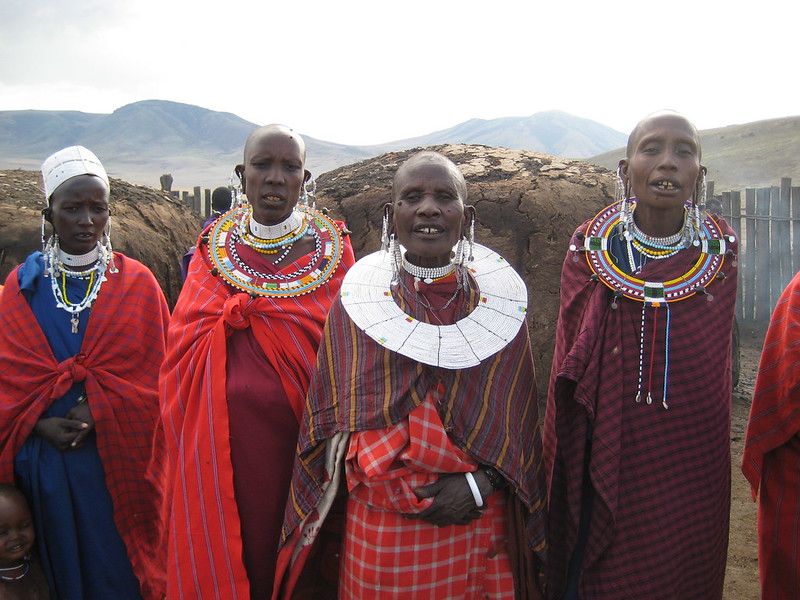The Love Is Project Reduces Poverty
 The well-known and time-honored skill of handcrafting intricate beadwork was present before colonial rule and continues to be cherished and carried out by the women of Kenya’s Maasai tribe. Not only do their beautiful creations have significant symbolic value but the crafts also provide women with an opportunity to use their creativity to support themselves and their families financially. Women have long sold their beadwork jewelry at their local markets, where it attracts both tourists and the new generation of African women looking to express themselves and represent their culture by wearing the traditions of the past and present. In 2012, Chrissie Lam recognized the uniqueness of this tradition and created the Love Is Project to help expand the Maasai tribe’s vision and artistry to a global scale.
The well-known and time-honored skill of handcrafting intricate beadwork was present before colonial rule and continues to be cherished and carried out by the women of Kenya’s Maasai tribe. Not only do their beautiful creations have significant symbolic value but the crafts also provide women with an opportunity to use their creativity to support themselves and their families financially. Women have long sold their beadwork jewelry at their local markets, where it attracts both tourists and the new generation of African women looking to express themselves and represent their culture by wearing the traditions of the past and present. In 2012, Chrissie Lam recognized the uniqueness of this tradition and created the Love Is Project to help expand the Maasai tribe’s vision and artistry to a global scale.
The Love Is Project
Chrissie Lam is the founder and CEO of the Love Is Project. Harnessing her background in the corporate fashion industry, Lam taught women from Kenya, Indonesia and Ecuador how to create and market a product that will resonate with people worldwide. She worked with artisans to “design a bracelet emblazoned with one powerful word: LOVE.” The Love Is Project website explains the reasoning behind the initiative’s name: love is “the single common thread that connects us all.” The goal of the project is to uplift “thousands of female artisans in developing countries around the world through fair wages, healthcare, education and more.” The project now covers 10 countries, empowering more than 2,000 women in Kenya, Indonesia, India, Guatemala, Bhutan, Ecuador, Vietnam, Columbia, Mexico and the Philippines to enter the workforce by becoming entrepreneurs.
How Making Bracelets Reduces Poverty
Poverty disproportionately impacts women, with women more likely to live in persistent poverty than men. About 22% of women have a persistent low income, compared with about 14% of men. As a result, it is harder for women to accrue “rainy day savings” and assets. In this way, women are at an economic disadvantage in comparison to their male counterparts.
During her trip to Kenya, Lam realized that “true empowerment is about job creation. Women need to be able to support themselves and their families.” Because of this “pay it forward” ideology, the Love Is Project has impacted thousands of lives through employment opportunities and financial freedom.
Showing solidarity during COVID-19, in 2020, the Love Is Project began the LOVE Grows Program. The program is a sustainable initiative “to empower locals to grow their own farming practices and skills so families can thrive — physically and economically.” The business also supports food gardens in Bhutan and provided a monetary donation to the ACCESS Development Services organization in India. Furthermore, the business “donated masks, sewing machines, supplies and food” to its partners in Uttar Pradesh, India.
Impact of the Love Is Project
A 28-year-old Love Is Project Kenyan artisan, Nantiyon Letaapo, started beading bracelets for the project in 2019. The income she earns allows her to support her family, enroll her four children in school and accumulate financial savings.
The Love Is Project is a business created, sustained and supported by women. It not only upholds the symbolic custom of beadwork in various countries around the world but also teaches women and girls that if they lead with love, they can achieve success.
– Sara Jordan Ruttert
Photo: Flickr
